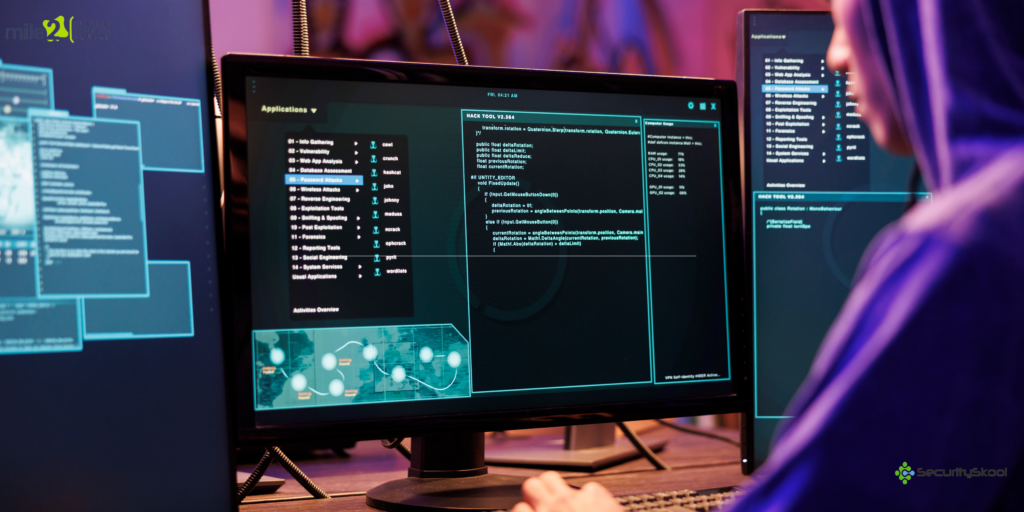
In today’s digital landscape, where data breaches and cyber attacks are increasingly prevalent, secure coding has become an essential practice for software developers. But is secure coding relevant for non-programmers as well? Absolutely! This guide explores the importance of secure coding for those outside traditional programming roles, offers key tips, discusses future career prospects, and outlines how to become proficient in secure coding.
Understanding Secure Coding: Why It Matters for Non-Programmers
Secure coding involves writing software in a way that minimizes security vulnerabilities and defends against potential threats. While it’s primarily associated with software developers, the principles of secure coding are important for everyone involved in the software development process—this includes project managers, quality assurance testers, system administrators, and even end-users.
Why Secure Coding is Crucial for Non-Programmers
- Protecting Sensitive Information: Many non-programmers handle sensitive data, such as user credentials and financial records. Understanding secure coding practices is vital for safeguarding this data against unauthorized access and breaches.
- Mitigating Risks: Knowledge of secure coding principles allows non-programmers to spot potential security vulnerabilities in software and take proactive steps to mitigate risks before they escalate.
- Compliance Requirements: Various industries have regulatory standards that mandate secure coding practices. Non-programmers need to be aware of these regulations to ensure their organizations remain compliant.
- Maintaining Reputation: Security breaches can severely damage an organization’s reputation and erode customer trust. Non-programmers play a critical role in ensuring the integrity and security of their organization’s software products.
Tips for Non-Programmers to Enhance Secure Coding Practices
While non-programmers may not write code themselves, they can significantly contribute to secure coding efforts. Here are some valuable tips:
– Stay Informed: Keep updated on the latest security threats, vulnerabilities, and best practices by engaging with industry publications, online courses, and professional networks.
– Promote Security Awareness: Foster a culture of security awareness within your team. Encourage colleagues to understand and prioritize secure coding practices throughout the development lifecycle.
– Collaborate with Developers: Work closely with developers to understand the security implications of various coding practices and offer insights during design and implementation phases.
– Conduct Security Reviews: Regularly review software code, configurations, and access controls to identify and address potential security weaknesses.
– Implement Secure Development Lifecycle (SDLC) Practices: Advocate for methodologies that incorporate security at every stage of the software development process—from requirements gathering to deployment and maintenance.
The Future of Secure Coding and Career Opportunities
As cyber threats continue to evolve, the demand for secure coding expertise is expected to rise significantly. Non-programmers with a solid grasp of secure coding principles will find numerous career opportunities, including:
– Security Analyst: Analyzing security threats, conducting risk assessments, and recommending measures to enhance software security.
– Compliance Officer: Ensuring that development processes adhere to industry regulations related to data protection and privacy.
– Security Consultant: Advising organizations on best practices for secure coding, conducting audits, and providing recommendations for software security improvements.
– Security Trainer/Evangelist: Educating development teams and stakeholders on secure coding techniques through workshops, training sessions, and awareness initiatives.
Becoming a Secure Coding Expert: A Path for Non-Programmers
Becoming proficient in secure coding is achievable for non-programmers with the right approach:
- Learn the Fundamentals: Start with a foundational understanding of basic cybersecurity concepts like encryption, authentication, access control, and secure coding principles.
- Take Training Courses: Enroll in training programs focused on secure coding practices tailored for non-programmers. Many reputable institutions offer introductory courses suitable for diverse backgrounds.
- Earn Certifications: Pursue relevant certifications, such as Certified Secure Software Lifecycle Professional (CSSLP) or Certified Information Systems Security Professional (CISSP), to validate your expertise in secure coding.
- Hands-On Experience: Engage in security-related projects, conduct vulnerability assessments, or contribute to secure coding initiatives within your organization to gain practical experience.
5.Continuous Learning: Stay informed about emerging threats and trends in secure coding by attending conferences, joining professional associations, and actively participating in the cybersecurity community.
Why SecuritySkool’s Certified Secure Coding Expert Certification Stands Out
Are you a beginner eager to enter the world of secure coding? Or perhaps you’re an experienced professional seeking to enhance your career? Look no further—SecuritySkool’s Certified Secure Coding Expert certification is designed for individuals at all stages of their coding journey.
Why Choose SecuritySkool?
– Industry-Recognized Excellence: Our certification is respected in the cybersecurity field, ensuring you stand out among your peers.
– Comprehensive Skill Validation: Whether you’re just starting or are an experienced coder, our program rigorously validates your skills, boosting your confidence in developing secure software.
– Global Standardization: Join a community of professionals adhering to international standards, making your certification widely acknowledged and valued.
– Networking Opportunities: Connect with like-minded individuals, experts, and potential employers through exclusive networking events provided by our certification.
Elevate your skills and career with SecuritySkool’s Secure Coding Certification. Become part of a community dedicated to excellence in cybersecurity, and embark on your journey to success today!
Conclusion
Secure coding is not solely the responsibility of software developers; it is a collective obligation that extends to everyone involved in the software development lifecycle. Non-programmers can play a vital role in fostering a culture of security and contributing to the resilience of software systems. By understanding the importance of secure coding, implementing best practices, and continuously enhancing their skills, non-programmers can become invaluable assets in the fight against cyber threats. Join SecuritySkool and take the first step toward becoming a secure coding expert!
